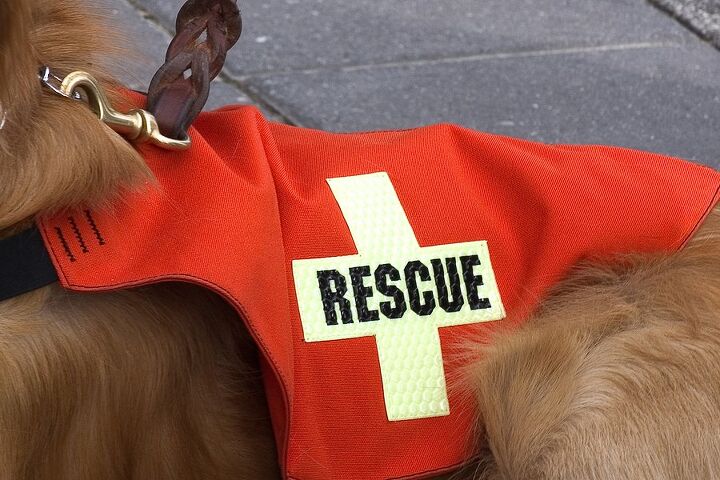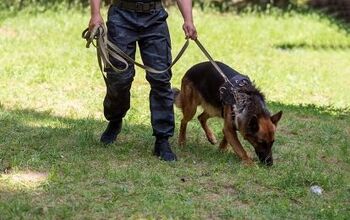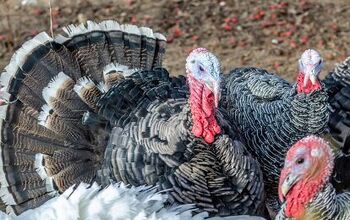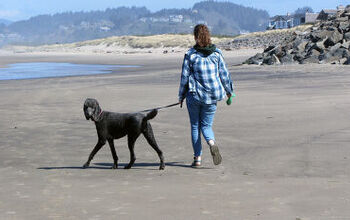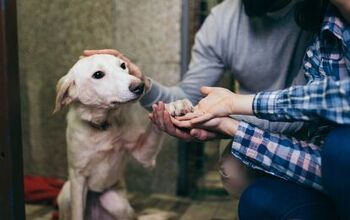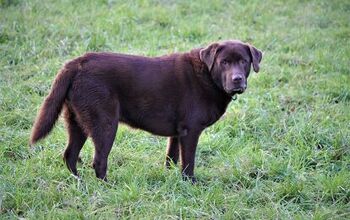AKC’s CHF Funded Study of 9/11 Search and Rescue Dogs Enters 14th Ye

We all know the numbers 9-11 and the terrifying images they conjure; people fleeing from a scene of overwhelming destruction, walls of suffocating dust and that terrible droning sound of the emergency sirens that signaled a situation beyond comprehension.
What about 95? That’s the number of search and rescue dogs that were deployed to the disaster zone to seek out survivors. Fifty-five ring a bell? Probably not, but it’s the number of non-deployed search and rescue dogs that joined their brothers at the World Trade Center, Staten Island Landfill and the Pentagon in the losing battle to find the injured.
Related: Watch Hero Dogs of 9/11 On Animal Planet
Fourteen is the number of years the American Kennel Club (AKC)’s Canine Health Foundation has been studying these dogs. Finally, three, is the number of four-legged heroes who are still alive and thriving alongside their handlers.
I personally believe there is a special place in doggie heaven for animals who willingly walk into scenes of total devastation with a goal of creating a positive outcome; Morgan, Tookie and Bretagne are such heroes and comprise the three remaining canine heroes who stepped up to the plate that day. They, and the many other search and rescue dogs from 9-11, form part of AKCs long-term medical surveillance study that is monitoring the health and behavior of the search and rescue dogs deployed that fateful day.
Related: Fidelco Receives $100,000 To Train Service Dogs For Veterans
The study, led by Dr. Cindy Otto of the University of Pennsylvania and founder of the Penn Vet Working Dog Center, has been underway since October 2001 and is funded by the AKC. According to Dr. Otto, “The ability to follow these dogs and document any health or behavioral effects of their heroic service is invaluable. The foresight of the AKC Canine Health Foundation is unparalleled. These surviving dogs really summarize much of our findings. The dogs on average have lived long and happy lives, a tribute to the relationship with their handlers, and the mental and physical activity that accompanied their careers in search and rescue”.
From the onset, Dr. Otto and her team began to monitor the respiratory health of the 95 dogs. While it’s well-documented that respiratory issues plagued many of the human responders, their canine companions did not suffer the same challenges and appeared to be incredibly resilient. “The dogs’ respiratory systems seem to have been able to cope with this horrible insult from the poor air quality, toxins, and pollutants to which they were exposed, and with no respiratory protection during the work that they did,” said Dr. Otto.
Data for the study has been collected over the years through annual examinations that include blood tests and chest radiographs to determine if the deployed dogs compared to control dogs have a higher incidence of long-term medical and/or behavioral problems. The study has also documented the cause of death in the deployed and control group dogs, and aims to determine if deployment contributes to any long-term health issues.
Preliminary findings do not show a significant difference in incidence of respiratory issues, cancer or in the median age at death between the deployed dogs and control dogs.
While these insights will provide vital information to handlers, trainers, and veterinary professionals on the health and well-being of dogs deployed on search and rescue missions, what’s happening with our trio of senior rescue pooches – an Airedale Terrier, golden Retriever and English springer spaniel?
Morgan was deployed to the Staten Island Landfill on 9-11 and today the 16 year old spaniel continues to lead an active and full life out on her handler’s farm. According to Katrene Johnson, Morgan loves to accompany her out to the barn throughout the day and while she’s a little slower these days, it’s clear her dreams are “full of fun and adventure”.
Tookie is a 15 year old Airedale who saw active duty at the World Trade Center. Her handler Jean Seibert notes that age has not diminished the dog’s mischievous spirit as she was recently caught snatching an entire loaf of bread off the kitchen counter. Siebert is grateful that research of this nature is being undertaken on behalf of all search and rescue dogs.
Bretagne is a 16-year-old Golden Retriever who began her training with handler Denise Corliss in the fall of 1999. In 2000 they became members of Texas Task Force 1 and their first deployment was the World Trade Center. Bretagne still enjoys daily walks, swimming, playing search games and working as a reading therapy dog at the local elementary school.
Retirements well earned, my friends.

Sharing space with three seriously judgy Schnoodles and a feline who prefers to be left alone. #LivingMyBestLife
More by Mary Simpson



